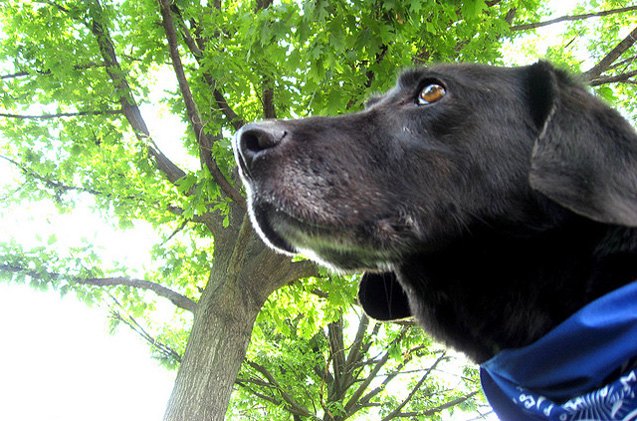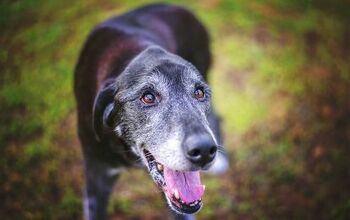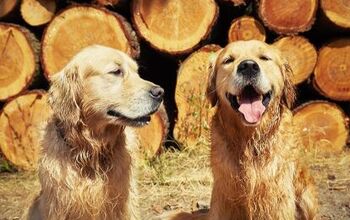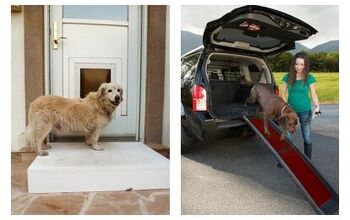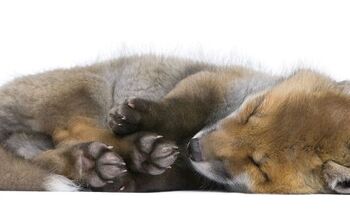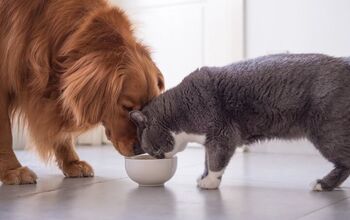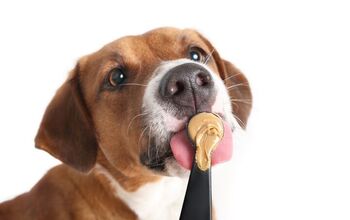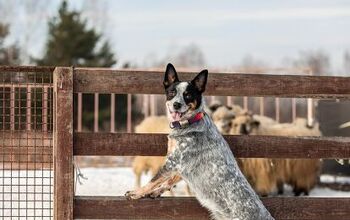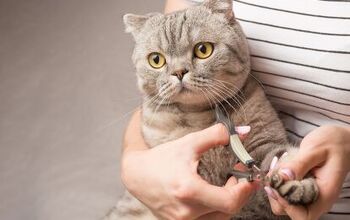Looking to adopt? Choose an older dog. There are plenty of reasons why you should adopt a senior dog, and we’ve outlined just 10 of them!
We’ve all heard the expression “you can’t teach an old dog new tricks”, but odds are most of us haven’t stopped to consider that if you adopt a senior pooch, you really don’t have to – he already knows them. So, why is it that when our best buddies are unfortunate enough to find themselves in a shelter after they’ve reached their golden years, its almost certain that they will never be adopted. And sadly, this is the fate of many “established” pooches that are ready, willing and able to share their life with a new family.
It may be that prospective pet parents fear falling in love, then losing their new pooch too soon. Or they’re concerned about costly medical issues that may (or may not) crop up. Maybe they think an older dog is too set in his ways to accept a new home or, well, learn those new tricks.
In many instances they’d be wrong. And although there is a wealth of reasons why a more seasoned dog is a great option for a family, we’ve narrowed it down to just 10 that should be considered before you decide to exclude an older pooch from making it onto your short-list of potential pets.
No Surprises with an Older Dog
Let’s face it, a bouncy, playful puppy is easy to gravitate towards, but each breed can present some health or personality issues as they grow older. While some can be a bit snappish, others may have dietary challenges or be prone to issues ranging from dental disease (smaller breeds) to joint issues. And some breeds are renowned for being difficult to train while others can be prone to separation anxiety which results in destructive behaviors if you leave them alone for periods of time. With an older dog, any of these behavioral or hereditary issues will have already presented – if at all. You’ll also know his fully-grown size and required activity level – so no surprises on these fronts either.
You’re Stepping Up
As mentioned earlier, older dogs that find their way into the already overcrowded shelter system are the least likely to be adopted into a new family. Because of this, they are among the first to be euthanized if they’re not adopted soon after arrival. While you may assume that if you don’t adopt him, someone else will, you’re likely to be wrong. Most never make it out of the shelter alive. These pooches have many great years left in them and are simply looking for someone to look past the grey and recognize the puppy that still lurks within. And don’t forget that by adopting any dog from a shelter, you’re helping to take a stand against puppy mills, pet stores and irresponsible breeders.
Training is Done
Anyone who has adopted a young puppy knows all about the sleepless nights caused by their new furry youngster yipping and yapping for his siblings. Puddles on the floor, shoes and furniture that have been gnawed on the moment he is left alone. Yes, puppies are cute but even with crating, that “breaking in” period is not for the faint of heart. And training any dog can be a mixed bag as a number of breeds are downright stubborn, requiring a professional trainer to step in. With an older dog, you can expect that he’s already been trained on the basic commands such as sit, leave it, stay and come. Better still, he’ll almost certainly know to wait till he gets outside to do his business and the days of him needing to chew on everything he encounters, are long past.
Older Dogs are More Chill
Our grey-muzzled friends are just so great to hang out with. Want to sit on the porch and read a book? He’s down for it. Try that with a puppy. If you have kids or older family members who want to take him for a walk, there’s no worry that he’s going to tug, lunge or jump around and either break free or knock them over. With a senior dog, that urgent need to burn off excess energy by chasing another animal or that errant wafting leaf isn’t there – which makes outings more relaxing. And when you just want to hang out on the sofa with a companion that you don’t have to continually supervise and entertain, an older dog is just the ticket.
Great for First Time Dog Owners
If you’ve always dreamed of adopting a pooch but have hesitated because you don’t think you have the time, energy or know-how to nurture a loving relationship with your pet, an older dog is ideal. Why, you ask? Because, they don’t have the same restless energy of a puppy. They’re a little slower, a lot more patient and much easier to connect with than their younger counterparts. And don’t be mis-led by a little “snow on the roof” (or grey on the muzzle), these older pooches are still quite capable of picking up new skills, learning new tricks and building strong, new relationships when given the opportunity.
They Fit in Well
Older dogs have often come from a family environment which may have included other animals. A pet parent passes away, a new baby makes caring for a dog just too challenging, allergies, a move, there are a number of reasons why an older dog is uprooted from all that is familiar and placed into the shelter system. The upside for adoptive parents is that this dog already understands the family dynamic and how to fit in with his human pack. And with most shelters, they’re able to tell you if that pooch with the softly greying muzzle and gentle eyes gets along well with other animals, likes to cuddle or has any fun, quirky behaviors you may want to know about.
They’ve Been Socialized
Because most older dogs have already been exposed to not only humans but other animals over the course of their life, you don’t have to worry about how they will react to new faces, sights and sounds. Socialization is a crucial part of puppy training and it shapes how a young dog will be able to adapt to new settings and get along with others. We’ve all seen dogs that bark and growl when strangers approach or become aggressive around other animals and this can often be down to a lack of proper socialization when they were young. With an older dog, it’s a safe bet that his senses have been exposed to a variety of stimulants and he’s likely to be less reactive in new situations.
A Great Option for Seniors
Older individuals often say they are reluctant to adopt another dog or cat because they are afraid it will outlive them. Understandably, they don’t want to see their beloved pet put into the shelter system and possibly languish in a cage while awaiting adoption…or euthanasia. And that’s why an older dog is a great option. While a puppy can be a long-term commitment with smaller breeds often breeching the 20-year mark these days, an older dog has a finite number of years left. He’s content to take shorter, easy walks or to simply hang out with his older pet parent. Additionally, studies continue to report the important role a pet can play in the life of a senior. The responsibility of having to feed, shelter and care for another living being improves both their mental and physical health.
They Are Quick to Bond
We’ve all seen those heart-breaking photos of dogs mourning by the graves of their deceased pet parents. The love is real and the loyalty unquestionable. Which is why I think a lot of prospective pet parents hesitate to adopt an older dog. Can they replace the unique bond this pooch has had with his former owner? The answer is a resounding “yes”. An older animal going through a life upheaval is in search of a new pack that he can bond with. He needs the reassurance that comes from companionship and having a sense of direction. In fact, many dog breeds are known to need a strong pack leader to help them cope. You can be that pack leader.
You’ll Feel Great About Your Choice
Pat yourself on the back. You haven’t succumbed to the cute little puppy or paid through the nose for a pure-bred dog that won’t be available for a couple more months. You’ve seen a dog in desperate need and brought him into your life. You’ve accepted all of the age-related benefits as well as the restrictions that he brings and can focus on enjoying the years ahead. There’s something special about making a home for an older animal because you just know he appreciates having a second chance at life. Rest assured that the warm and fuzzy feeling you get each time you scratch his head or offer him a treat, never ends.





